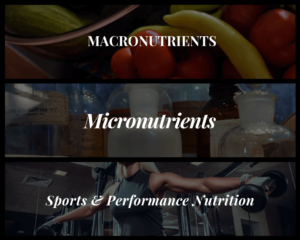Sports nutrition is majorly regarded as the groundwork for athletic success. It is a well-designed nutrition plan that allows adults and athletes to perform to the best of their abilities. It works with physiotherapy to provide the right food type, energy, nutrients, and fluids to keep the body well hydrated and running at maximum levels. Sports nutrition vary from person to person depending on their individual goals. A sports nutrition diet may differ from time to time, depending on specific energy and personal demands.
Dynamic adults and competitive athletes look to sports nutrition and physiotherapy to help them achieve their goals. Individual goals could include gaining lean weight, improving body composition, or augmenting athletic performance. These sport-specific scenarios require different nutritional programs. Study shows that the right type of food, amount of caloric intake, nutrient timing, fluids, and supplementation are essential and particular to each.

Nutrition is paramount to every athlete, and at high levels, all things being equal, it can be the difference between winning and losing. Recovering from a session of physiotherapy or recreational exercise, it is integral to the athlete’s training routine. Without suitable regaining of carbohydrate, protein, fluids, and electrolytes; performance may be hampered. The significance of personalised nutritional advice has been all the time more recognised, including daily dietary guidance and specific advice before, during, and after training and therapy.
Active adults working out about three to four times weekly can typically meet nutritional requirements over a regular healthy diet. Moderate to elite athletes performing high-intensity physical activity five to six times weekly 💪 will require significantly more intake of nutrients to support energy demands. Some factors contribute to success in sport and diet is a crucial component. An active individual’s dietary requirements depend on several aspects, including the kind of activity carried out, the individual’s goals, the environment, and practical problems.
A Nutritional diet is generally broken down into classes firs, then more fundamentally into the two types of nutrients required to maintain proper balance in the body.
- Macronutrients; nutrients that deliver calories or energy to the body. The purpose of macronutrients is to stimulate healthy cellular development, metabolism, and to uphold regular bodily functions. The macronutrients, as the name implies are desired in the body in considerable quantities to provide the complete effect.
- Micronutrients; chemical elements comprised of thirteen essential organic vitamins and seven inorganic minerals. When introduced into the human body, micronutrients play a crucial role in energy production, healthy growth, and maintain a healthy metabolism. As the name “micro” suggests, these chemical elements are only required to exist in the body in small amounts to provide the necessary effect.

Nutrition is a crucial factor for recovery from sports injuries or while undergoing any form of therapy; either manual tissue, soft tissue massages or any other form of massage therapy. A personalised dietary plan is of utmost importance as it facilitates an increased speed of recovery and recuperation to get you in best possible shape as soon as physically possible 💪 after the period of physiotherapy treatment.
If you want to discus your nutritional needs further then contact the clinic to arrange a time with our Football Sports and performance Nutritionist!





